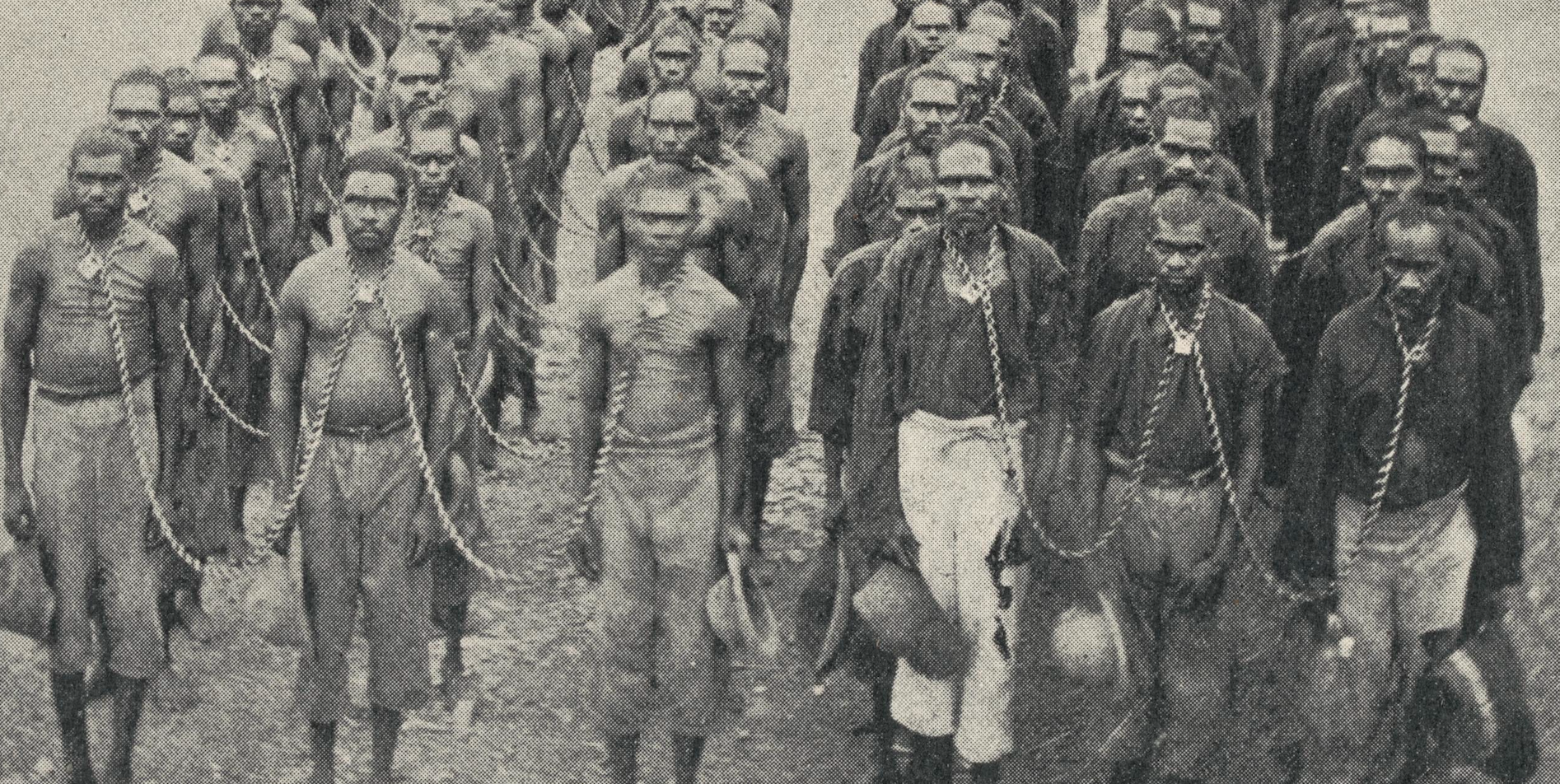
Western Australian Legacies of Slavery
‘Aboriginal bathing gang’, ‘The Aborigines question’, The Western Mail, illustrated supplement, 18 February 1905, p. 24.
This image is taken from a newspaper feature published in 1905 and shows an ‘Aboriginal bathing gang’, at Wyndham, north-western Western Australia. While it seems so shocking to us now as evidence of colonial injustice and brutality, at the time this was published many observers regarded the image as proof of the prisoners’ humane treatment. Humanitarians drew on British anti-slavery discourse to protest against Aboriginal neck-chaining. Today, Aboriginal communities from the Kimberley advise that they wish these difficult stories to be told.
Western Australian Legacies of British Slavery explores links between slavery in the British Empire and settler colonialism by tracing the movement of capital, people and culture from slave-owning Britain to Western Australia (WA).
This project examined the importance of the legacy of British slavery for the colonisation of Western Australia, and the reasons why this history has been overlooked. In August 1833 British Parliament abolished slavery in the British Caribbean, Mauritius and the Cape when it passed the ‘Act for the abolition of slavery throughout the British Colonies, for promoting the industry of manumitted slaves, and for compensating the persons hitherto entitled to the services of such slaves.’ While this momentous event has continued to be celebrated, it is often forgotten that many of those who benefited from slavery had ties to other parts of the British Empire, including the settler colonies of Australia, Canada and South Africa.
Our team traced the movement of people, goods, capital, and practices from the Caribbean to the newly-established colony of Western Australia. We worked in collaboration with the National Centre of Biography, the Australian National Maritime Museum (ANMM), and the Centre for the Study of the Legacies of British Slave-ownership at University College London. The project researched Western Australian colonists and their networks, contributing to the Australian Dictionary of Biography, the People Australia database, and an exhibition at the ANMM.
It is funded by the Australian Research Council (ARC DP200100094).
We acknowledge and pay respect to the traditional owners of the lands on which this project is undertaken, recognising more than 60,000 years of Indigenous life and culture.